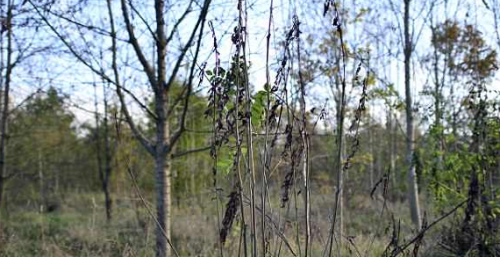Besides affecting human health, air pollution is also causing malnutrition in trees by harming a fungi that is important for providing mineral nutrients to tree roots, finds a new study.
Mycorrhizae fungi is hosted by the trees in their roots to receive nutrients from the soil. These fungi provide essential nutrients like nitrogen, phosphorus and potassium from soil in exchange for carbon from the tree.
This plant-fungal symbiotic relationship is crucial for the health of the tree.
However, high levels of the nutrition elements like nitrogen and phosphorus in the mycorrhizae changes them to act as pollutants rather than nutrients, the findings showed.
The signs of malnutrition can be seen in the form of discoloured leaves and excessive falling of leaves.
“There is an alarming trend of tree malnutrition across Europe, which leaves forests vulnerable to pests, disease and climate change,” said lead researcher Martin Bidartondo from Imperial College London.
“Processes happening in soil and roots are often ignored, assumed or modelled because studying them directly is difficult, but it is crucial for assessing tree functioning.”
The study, published in the journal Nature, examined 40,000 roots from 13,000 soil samples at 137 forest sites in 20 European countries for a period of 10 years to determine the fungi’s tolerance to pollution.
The researchers noted that ecosystem changes can negatively affect tree health. For example, the team proposed that some changes result in more “parasitic” mycorrhizae, that is those that take carbon in exchange for insufficient level of nutrients.
Further, they found that the characteristics of the tree — species and nutrient status — and the local environmental conditions like the atmospheric pollution and soil variables were the most important predictors of which species of mycorrhizae fungi would be present and their numbers.
These also proved to have a large impact on the fungi.
The researchers suggested that the results should be used to design new in-depth studies into the link between pollution, soil, mycorrhizae, and tree growth health.
IANS
